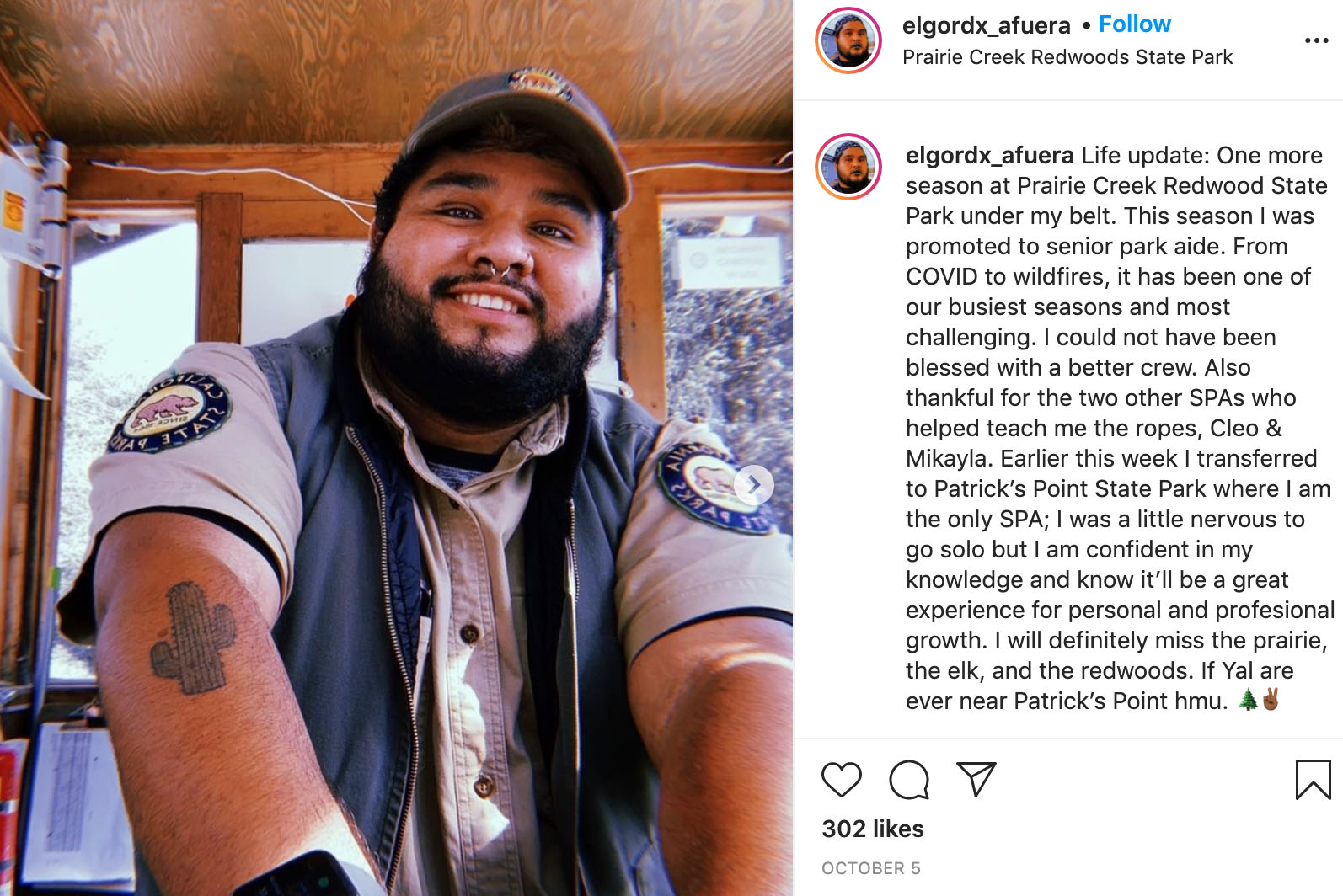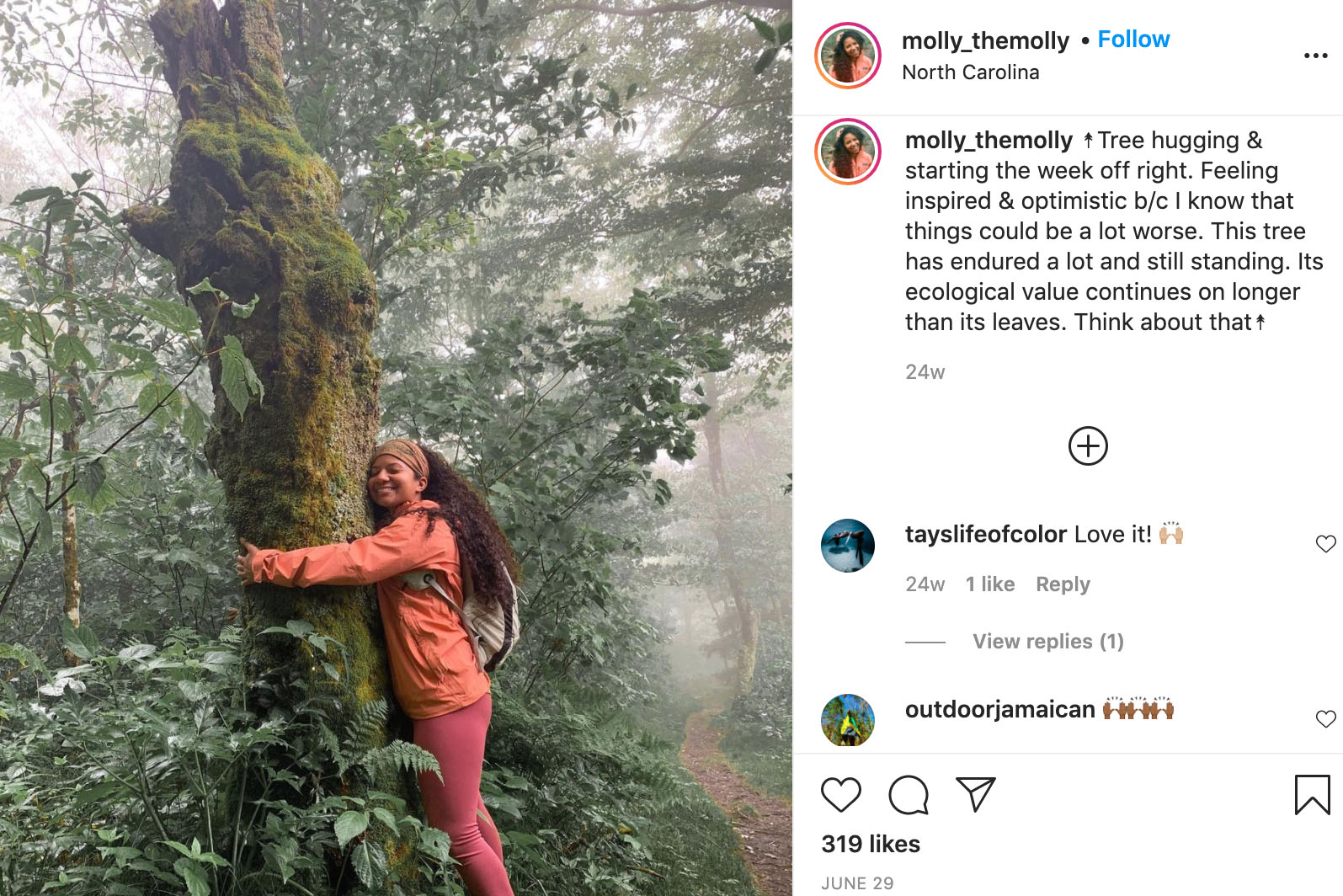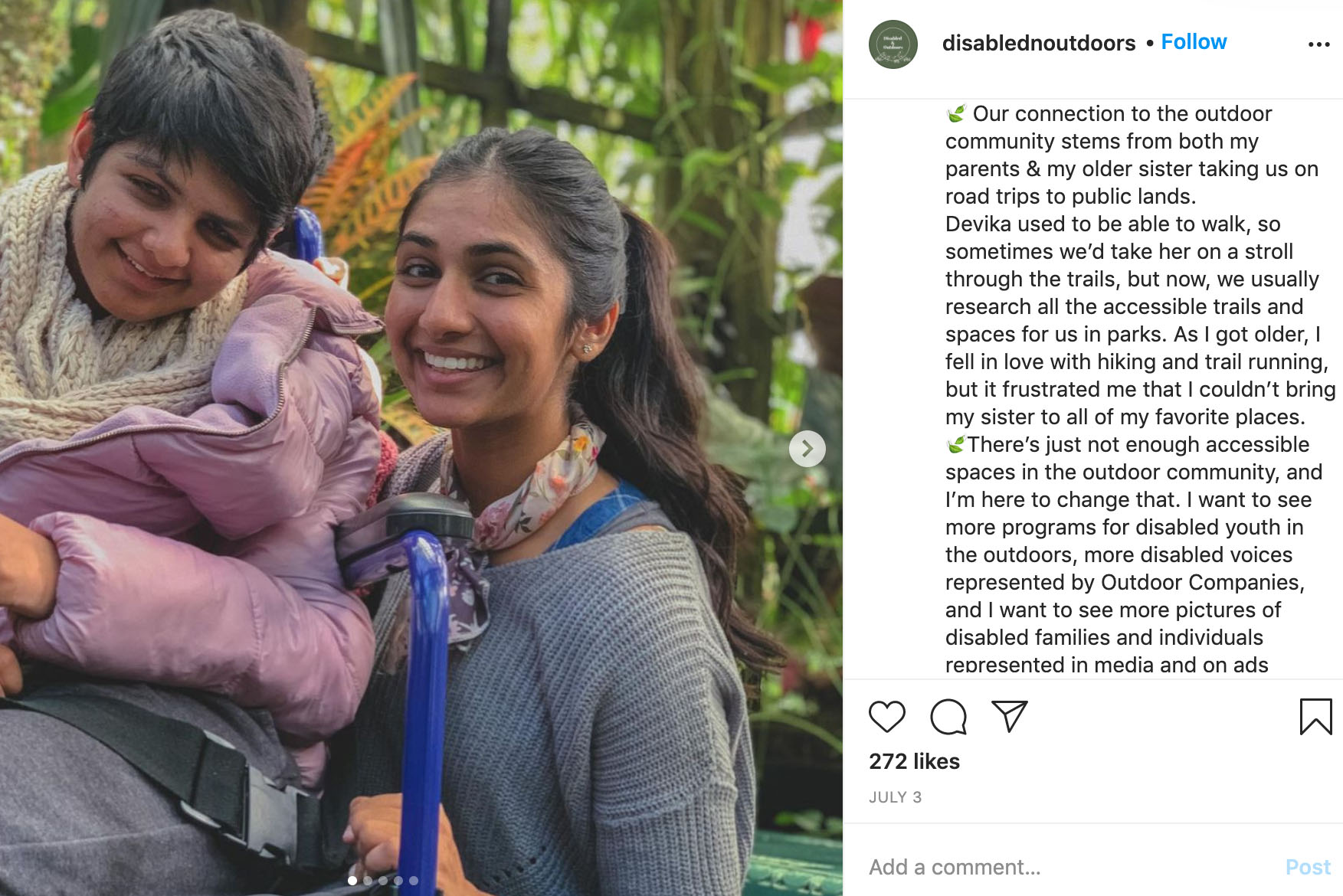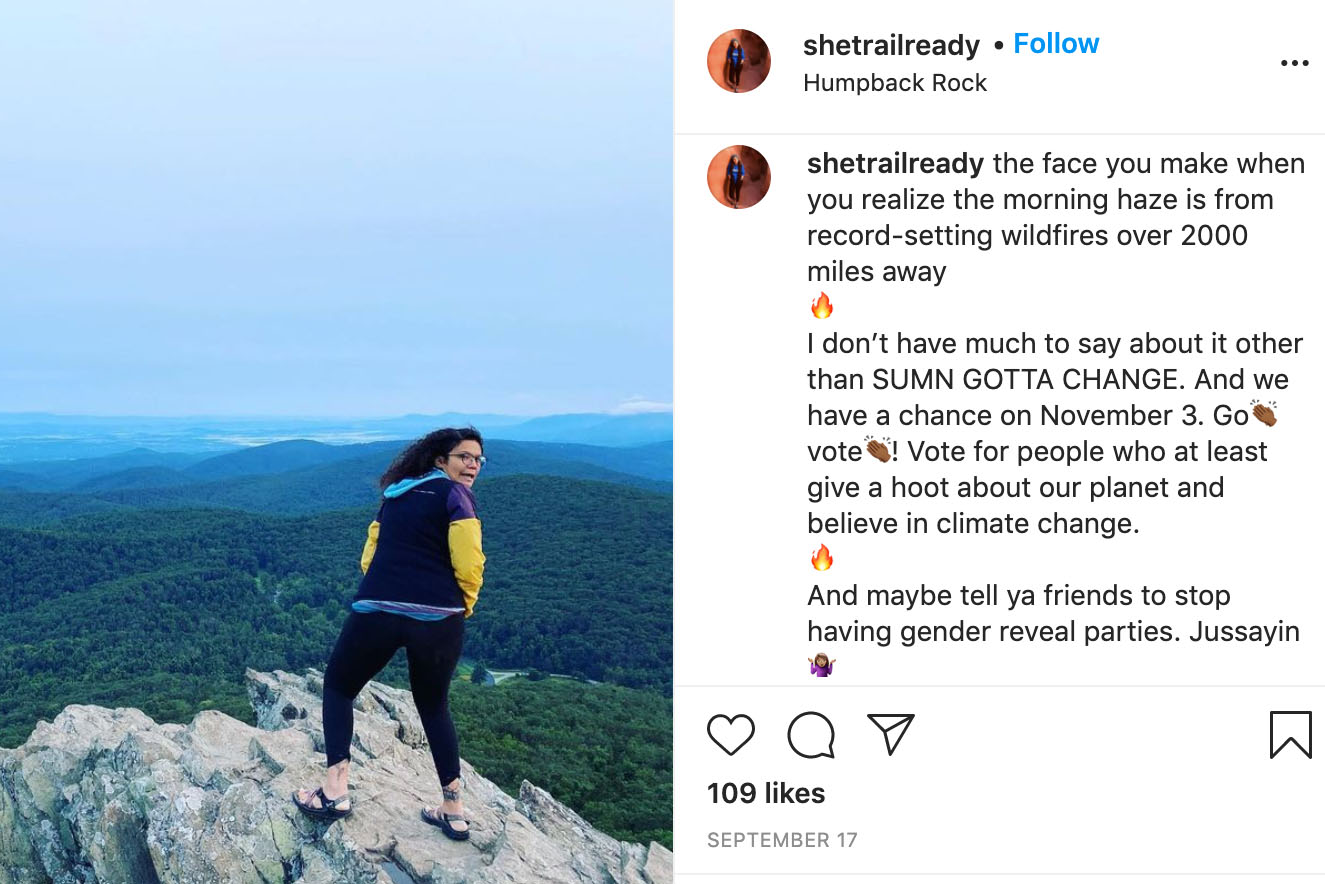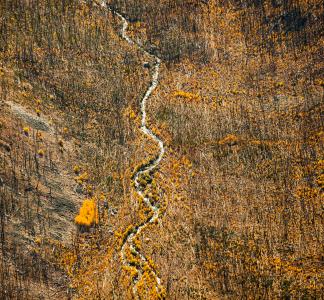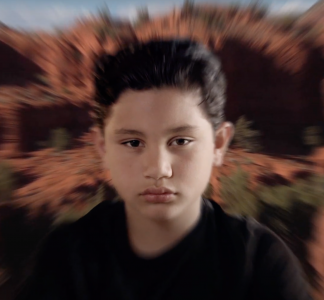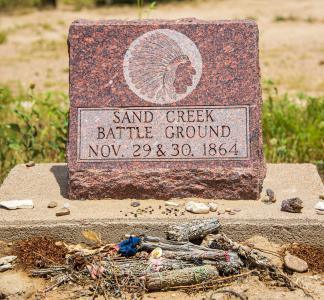Four climate justice activists to follow on social media
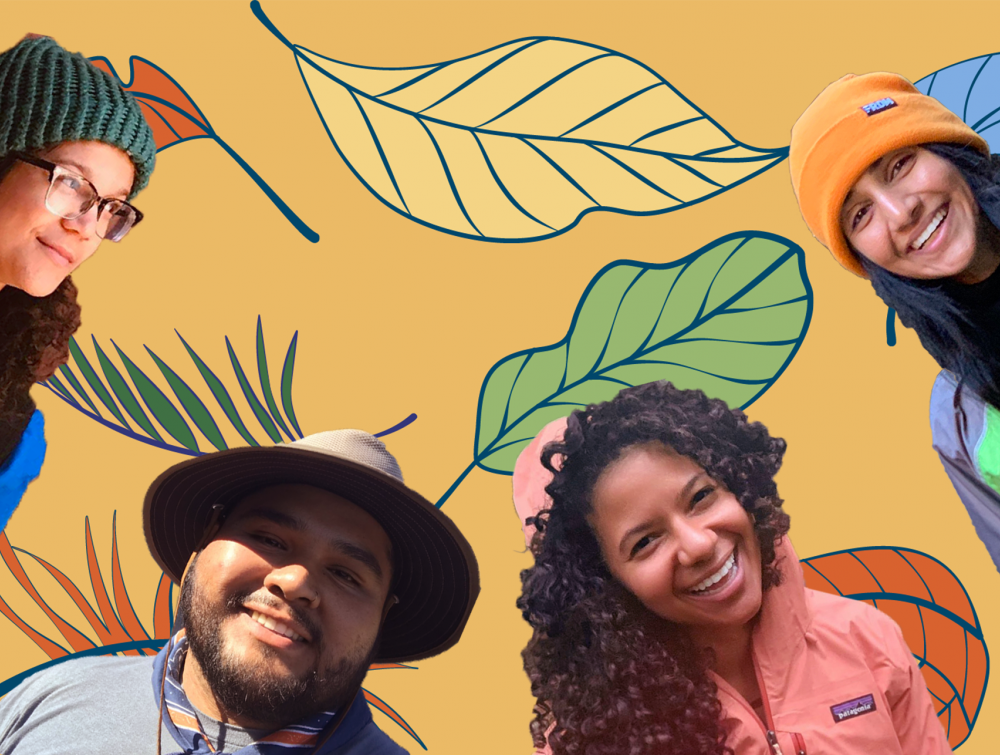
Meet activists fighting for climate justice one post at a time
We can't keep our eyes off these activists’ social media feeds as they post about nature, social justice and climate change. They’ve been educating their audiences on how these issues are intrinsically connected one post at a time. They’ve also been sharing their personal experiences as they navigate a warming planet.
Their posts are a reminder that climate change is more than an environmental issue —it’s a social issue as well. Black, Brown, Indigenous and working-class communities are disproportionately burdened by rising global temperatures. These communities are often in the pathway of wildfires, extreme heat, floods and droughts due to racist housing policies and practices. They also have a harder time recovering financially from climate disasters.
We wanted to know more about their lives and ask how they see nature and public lands playing a role in the fight against the climate crisis. Check out their responses below and get to know them by following them on Instagram!
Jose Cabello (@elgordx_afuera)
Jose Cabello (they/them) is a recent graduate of Humboldt State University with a degree in Environmental Studies and a concentration in Community Organizing. They volunteer for Latino Outdoors as a program coordinator where their passion for the outdoors and social justice intersect.
How has the climate crisis impacted your community?
Where do I even begin? Four years ago I moved to Arcata, CA which is located in Northern California. In those four short years, I have observed how dramatically our community has been impacted by climate change. Each year that passed I noticed less rain; the lack of rainfall has led to increased fire danger as well as toxic algal blooms in the rivers which are vital to a healthy ecosystem and the salmon population. One of California's biggest fires is burning just east of us, officials have estimated that over 1 million acres have burned. Some of those fires have been burning since July. Over the last few months, we have had to live through a constant state of anxiety in preparation for the worst amidst a global pandemic. Luckily there are grassroots efforts working to ensure that those most vulnerable in our community are receiving the help that they need.
Where do you see the intersection of the climate crisis, public lands and racism?
We cannot focus on the climate crisis without ignoring how it is connected to public lands and racism. All three are rooted in colonialism; colonization is the foundation that has created such disastrous conditions. Arcata was built on stolen Wiyot land. Westward expansion brought catastrophic consequences to this land and the native community. It is estimated that fewer than 5 percent of the original old-growth redwood forest is left due to the unsustainable extraction of the logging industry. The culmination of decades of extractive harvesting of lumber and fishing (and more recently the cannabis industry) have created toxic algal blooms in the rivers. The local tribes rely on the salmon; they are a significant part of their culture as well as the redwood trees.
How do you think access to nature and public lands can help address climate change?
As cheesy as it sounds, I think that if enough people spent time out in nature they would love it and want to protect it; I think that everyone should be afforded the opportunity to immerse themselves in nature. I used to hate spending time outside and now I try my best to spend as much time as possible hiking, walking along the beach, or even just sitting underneath giant redwood trees. It only took one person and one positive experience for me to reconnect with nature and spark a passion for conservation. I can only hope that by educating people and creating equitable access to public lands we can make a shift in the right direction.
Molly Cantrell (@molly_themolly)
Molly Cantrell (she/her) is a professional in the outdoor industry, adventurer and artist. She is 30 years old and based in Asheville, NC.
How has the climate crisis impacted your community?
I am new to the area (Asheville, NC) but I've noticed a lot of heavy rainfall and I've been told by people who have lived here for many years that this year, in particular, has had more rain than any of the other years. Increased rain equals increased flooding and sets up for slope failure and then landslides. All of this combined with an increase in temperatures, but I feel like the increase in temperatures was common as well.
Where do you see the intersection of the climate crisis, public lands and racism?
Socially constructed categories. Exploitation. Colonialism. etc. Environmental injustice for many years has been pushed upon underrepresented communities. Public Lands are first and foremost stolen Native Land. So, while developing the protection of these natural areas it displaced Indigenous communities. This Hierarchy takes and takes through industrialism and destroys everything around it.
How do you think access to nature and public lands can help address climate change?
As of now, it's not helping. Restoration and Conservation. More transparency allows for more public involvement. It's a piece of the solution but so much work needs to be done. We can't change the world until we accept that we need to change a little bit about ourselves.
Ambika Rajyagor (@gangesgal, @disablednoutdoors)
Ambika Rajyagor (she/her) is a first-generation Indian-American writer, activist and digital creative with an emphasis on Intersectional Feminism, Special Needs Rights and Nature Conservation.
How has the climate crisis impacted your community?
The ongoing climate crisis has directly impacted my community, multiple times. I live in a very hilly area that is on high alert every fire season, and this year, because of the extreme winds and zero percent humidity, the Blue Ridge fire took over our community. Thankfully, we have incredible firefighters who worked day and night to protect our homes, but still-- I couldn't help but think about how climate change played its role in amplifying the power of these fires. The intensity of the winds seems to be increasing year over year, on top of the dry air that enables these fires. Each season carries its own new natural issues, like dealing with the record-breaking temperatures each summer and hoping for rain each spring. Aside from this though, we are in no immediate danger from natural disasters like other places in America, so I'm aware of the privilege that comes with that. If anything, living through these weird natural events over the majority of my life has only made me become more of an advocate for nature conservation and environmental advocacy. It makes me think of the marginalized communities all around the world who have to deal with the worst parts of climate change, even though they have nothing to do with the 100 companies who account for 70 percent of global emissions. It's not right, and it shouldn't have to happen to you or your community to matter to you.
Where do you see the intersection of the climate crisis, public lands and racism?
I fully believe that environmental justice is intersectional. Our public lands are constantly at the threat of the ongoing climate crisis, and the high-level administrations who are in charge of making decisions for them need to be mindful of that. Under the Trump administration, it was so obviously not a pressing matter, and we saw that through the proposed plans for commercialization of public lands, and press conferences where states were being blamed for not "cleaning up the leaves" well enough. Racism in the outdoors affects environmental justice as well, because without environmental advocacy, marginalized communities become an afterthought in the climate crisis conversation. Racism and prejudice in the outdoor community exists on multiple levels-- ranging from Indigenous access to land management, to environmental legislation, and access to the outdoors in general.
How do you think access to nature and public lands can help address climate change?
I believe access to nature and public lands can help address climate change through exposure and education. I'm also a very passionate advocate for the disabled outdoor community, and fully believe that with representation and inclusive environmental justice conversations, we can talk about approaching climate change on a more widespread level. I also believe that access to nature is one important topic, but feeling safe and included in the outdoor community is equally as important. Building an inclusive outdoor community that prioritises conservation education and environmental justice is extremely important as we continue our work against climate change.
Sarah Scruggs (@shetrailready)
Sarah Scruggs (she/her) is a 24 year old Black queer hiker and outdoor enthusiast.
How has the climate crisis impacted your community?
For Black people, climate change and pollution has had direct negative effects on our community. We’re more likely to live in areas that have lower air quality due to highway emissions and/or be consistently exposed to hazardous chemicals from industrial business. Y’all ever heard of Flint, MI? Not having access to clean water is an environmental issue as much as it is a racist issue. We had a record-setting number of hurricanes this year—some happening at the same time—many of them coming through the Gulf Coast and devastating areas in the South that have a larger Black population.
Where do you see the intersection of the climate crisis, public lands and racism?
Protected public lands are often in danger because of the desire to extract and exploit our planet's non-renewable resources. These actions like mining, fracking and changing the landscape speed up climate change which has directly led to devastating events like fires and flooding. Regardless of race, it takes wealth for people to live outside of areas with higher potential to be devastated by climate change and it requires resources to recover from these events. This country was not designed to have that wealth held by Black, Indigenous and people of color.
In another brief explanation: Public lands exploited for non-renewable resources —> likely destruction of cultural landscapes sacred to a number of Indigenous communities —> use of these non-renewable resources increasing natural disasters and damaging the planet beyond repair —> communities of color are disproportionately affected whether it’s from the disaster itself or inability to recover.
How do you think access to nature and public lands can help address climate change?
If people don’t know that these natural resources and public lands exist, how will we protect them? It’s almost too simply a matter of exposure and awareness of what creates the environment we live in.
